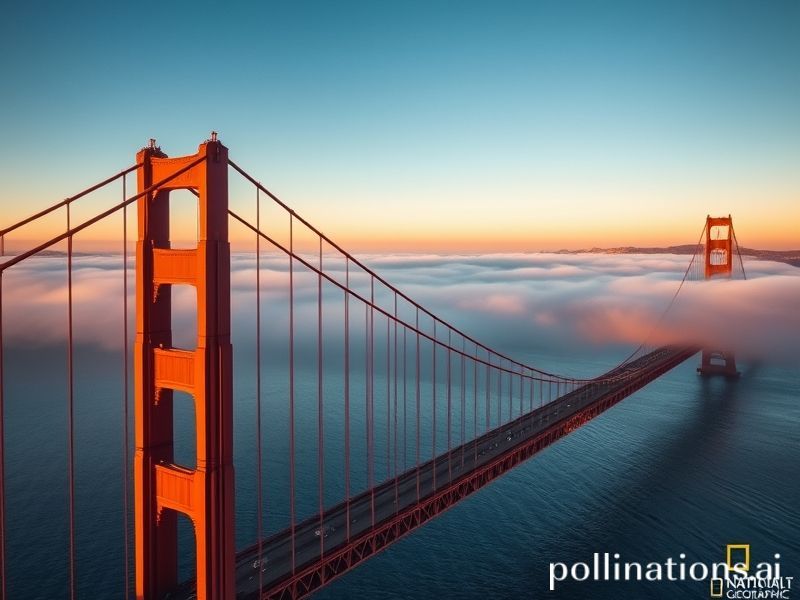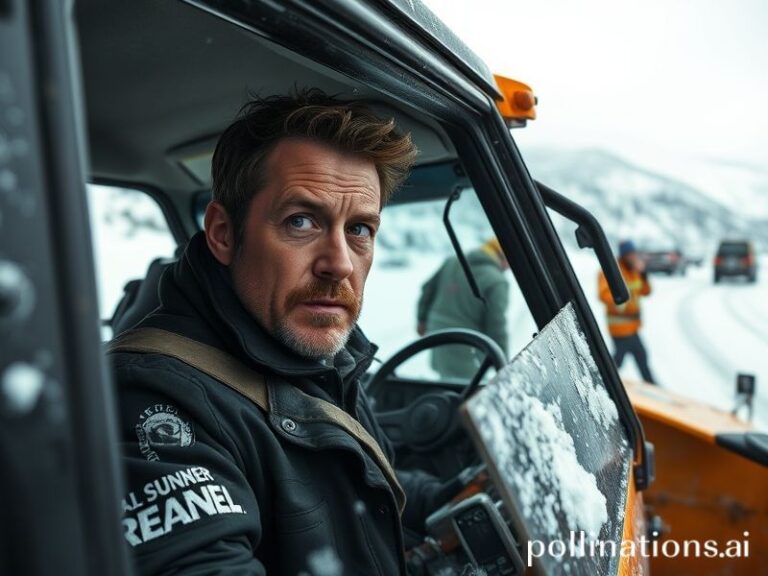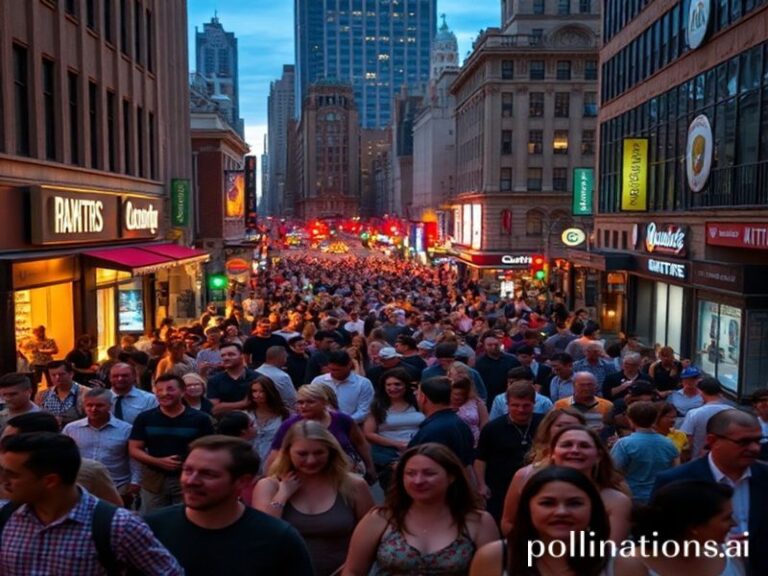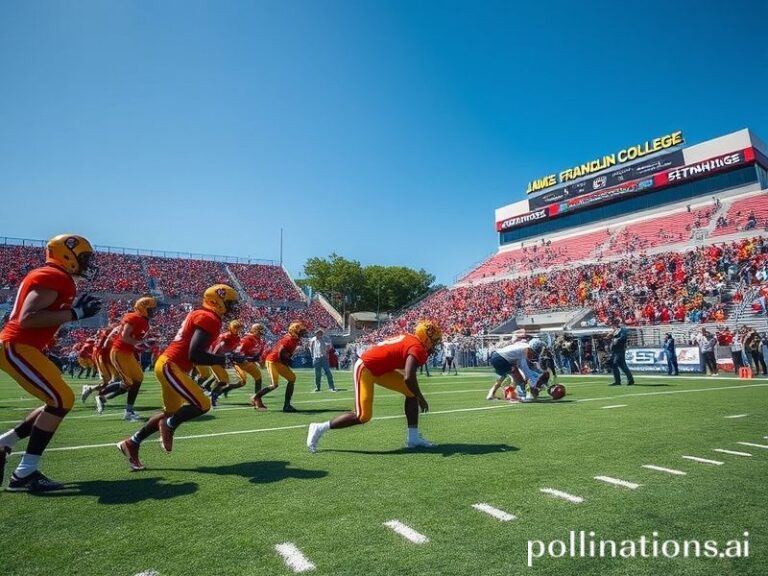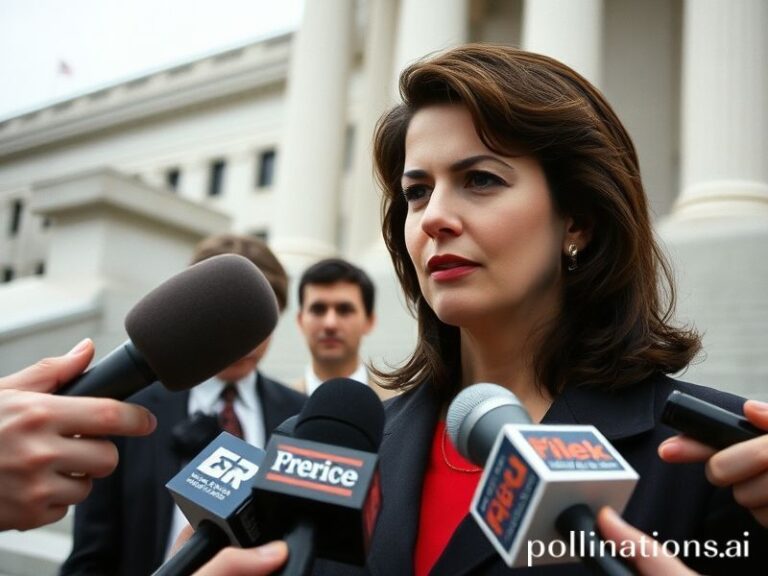Karl the Fog: How San Francisco’s Weather Became a Global Power Player
San Francisco Weather: The Fog That Ate Global Capitalism
By Our Man on the Brink, filing from a city that still thinks irony is a weather pattern.
Let us begin with the only forecast that matters: Karl the Fog—that amorphous, sentient blanket of damp self-importance—has been granted diplomatic status by at least three EU member states and is currently negotiating observer-state privileges at the UN. While the rest of the planet broils, floods, or braces for yet another “once-in-a-millennium” hurricane, San Francisco’s most influential resident drifts in daily from the Pacific like a bored aristocrat late to brunch, extinguishing sunsets, IPO launches, and garden-variety optimism with equal indifference.
Europeans, who invented melancholy and then exported it as a lifestyle brand, watch Karl’s livestream the way they once monitored the Fulda Gap. To Berliners hosing down melting tarmac or Athenians Googling “reverse snowbird visas,” Karl is proof that the Californian dream still has one reliable bouncer. Meanwhile, the Gulf monarchies—whose own air is conditioned to the point of cryogenesis—treat the fog as a boutique import, commissioning billion-dollar “mist lounges” on reclaimed islands where Emirati influencers pose in Patagonia vests they’ll never need.
Across the Himalayas, Indian climatologists study Karl’s schedule with the sort of reverence usually reserved for monsoon deities. If a mid-latitude city can routinely cancel summer with a marine layer, perhaps Delhi’s 50 °C heat dome can be sedated by a transcontinental fog cannon—an idea so delusional it already has seed funding from three Bay Area VCs who’ve never worn closed-toe shoes.
And then there is China, where state media alternately ridicule Karl as “bourgeois weather” and quietly task engineers with replicating it over Beijing’s silicon suburb of Haidian. The project—codename “Operation Frisco Panda”—has produced several promising prototypes: a silver iodide cloud seeded to cry on command, and a fleet of drones that spray chilled Perrier over Zhongguancun. Both were last seen drifting toward Pyongyang, where Supreme Leader Kim reportedly declared them “insufficiently imperialist.”
All of this geopolitical theater, of course, is lost on the average San Franciscan, who greets the daily fog with the weary stoicism of a medieval villager enduring a minor plague. The city’s wardrobe—Allbirds, Patagonia, and a fleece vest ethically harvested from recycled venture capital—functions as both uniform and flotation device. Tourists, clutching $14 Anchor Steams and the last working paper map in North America, huddle at Fisherman’s Wharf wondering aloud why July feels like late-stage November in Glasgow. Locals respond by quoting Mark Twain, who probably never said the thing they quote, then retreat indoors to argue about zoning and the proper pronunciation of “Gough.”
Economically, Karl behaves like a private equity firm: extracting value from sunshine, downsizing warmth, and leaving behind a damp husk of civic morale. Real-estate listings boast “partial fog views” as if partial blindness were a feature. IPO prospectuses include fog-adjusted EBITDA. Even the city’s omnipresent scooters—those lime-green symbols of late capitalism’s attention span—refuse to function once condensation reaches a certain bespoke viscosity. Result: grown adults in Patagonia vests walking uphill both ways, muttering about disruption while clutching oat-milk lattes that cost more than the GDP of a Micronesian atoll.
Yet, in a world where weather has become a weapon—either by omission (Siberian heat), commission (Saudi cloud seeding), or sheer incompetence (looking at you, Texas grid)—Karl remains refreshingly nonpartisan. He does not discriminate by net worth, nationality, or crypto allegiance. He simply arrives, unfurls, and reminds every species, from seed-stage founders to feral parrots, that nature still outranks even the most diversified portfolio.
So, as COP delegates in distant conference halls haggle over half-degree increments and loss-and-damage commas, Karl continues his nightly commute, indifferent to carbon credits and TED Talks alike. He is the last honest broker on an overheating planet, a mute witness to humanity’s attempt to monetize the very sky. And tomorrow, when the fog rolls in again—right on schedule, right on brand—San Francisco will greet it with the same weary nod one gives an old friend who owes you money but always brings good wine.
The forecast, dear reader, remains stubbornly the same: gray with a 100 % chance of existential reckoning. Bring layers.

